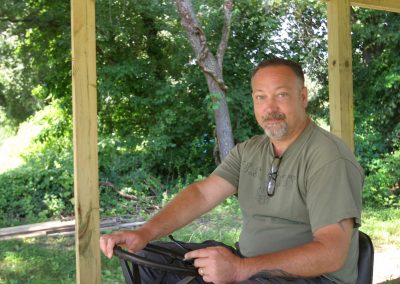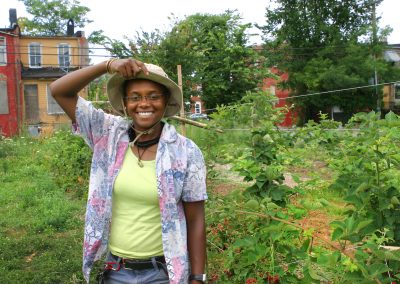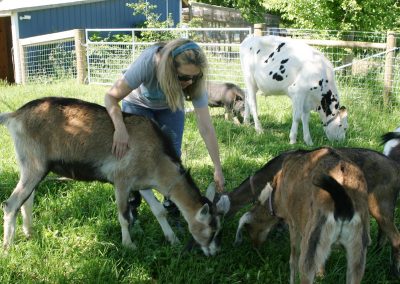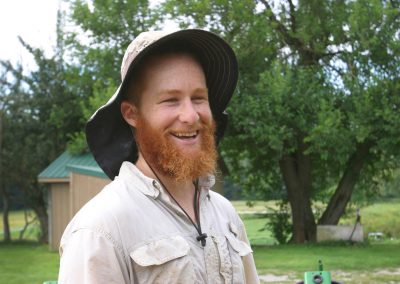Tomorrow’s Harvest >> Jason James
Jason James: A creative use of suburban land
Jason James’ “opportunist” spirit takes local to a whole new level
Story by Conni Leigh James and Priscilla Wentworth; photos by Conni Leigh James
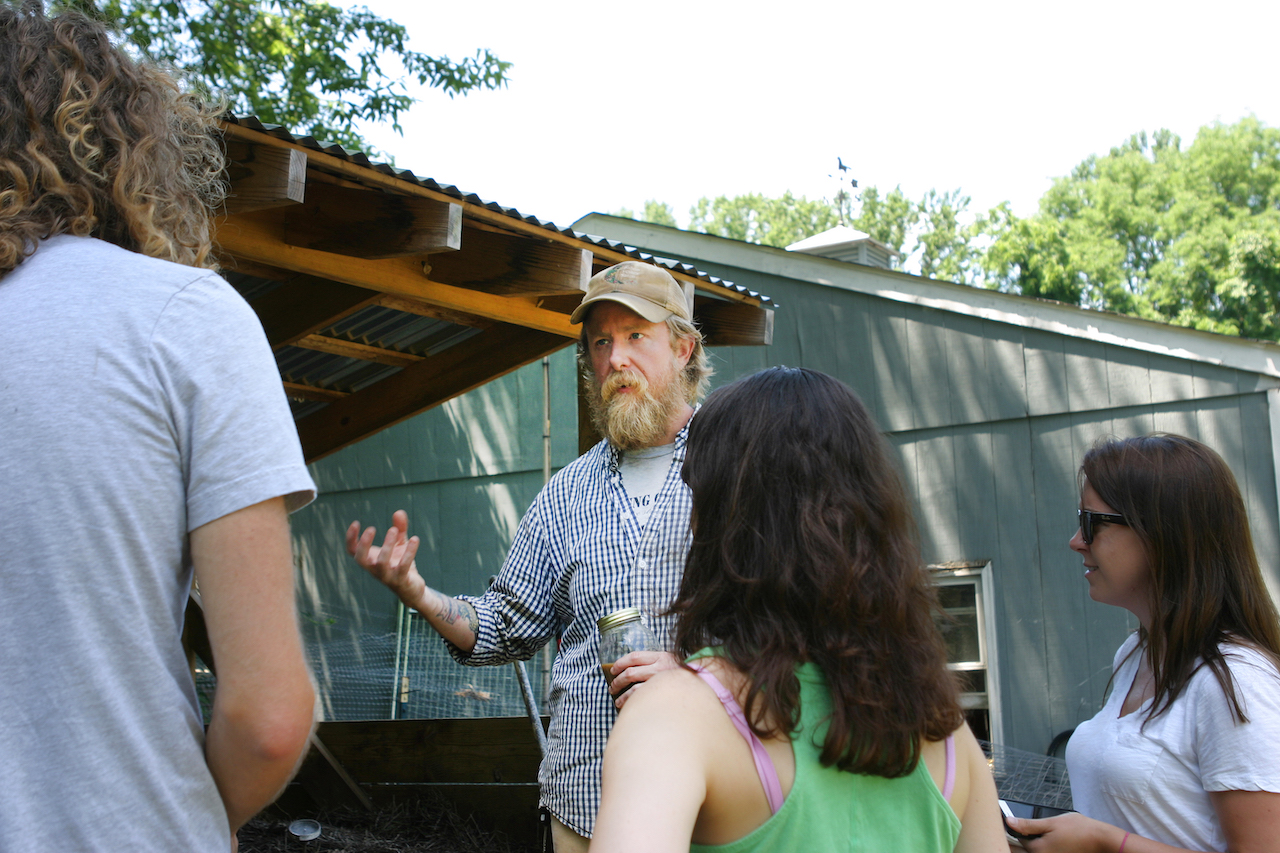
This two-story colonial looks much like many homes in Cockeysville, complete with old-growth trees, arched gravel drive and tow-headed children romping on the lawn with the family dog.
But around back, the view takes a decidedly rural twist. There’s a chicken coop, composting station, hoop houses, a barn, and field of herbs and vegetables–all the makings of a full-fledged farm in this suburban backyard.
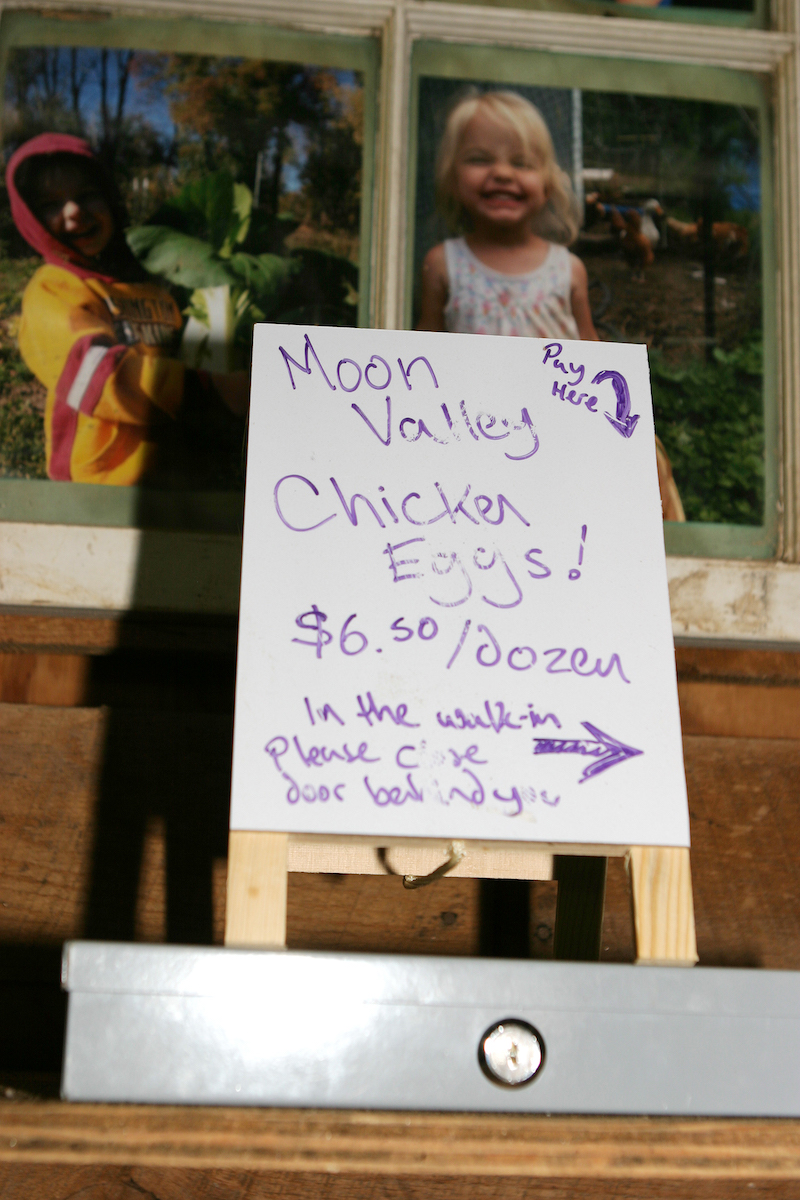
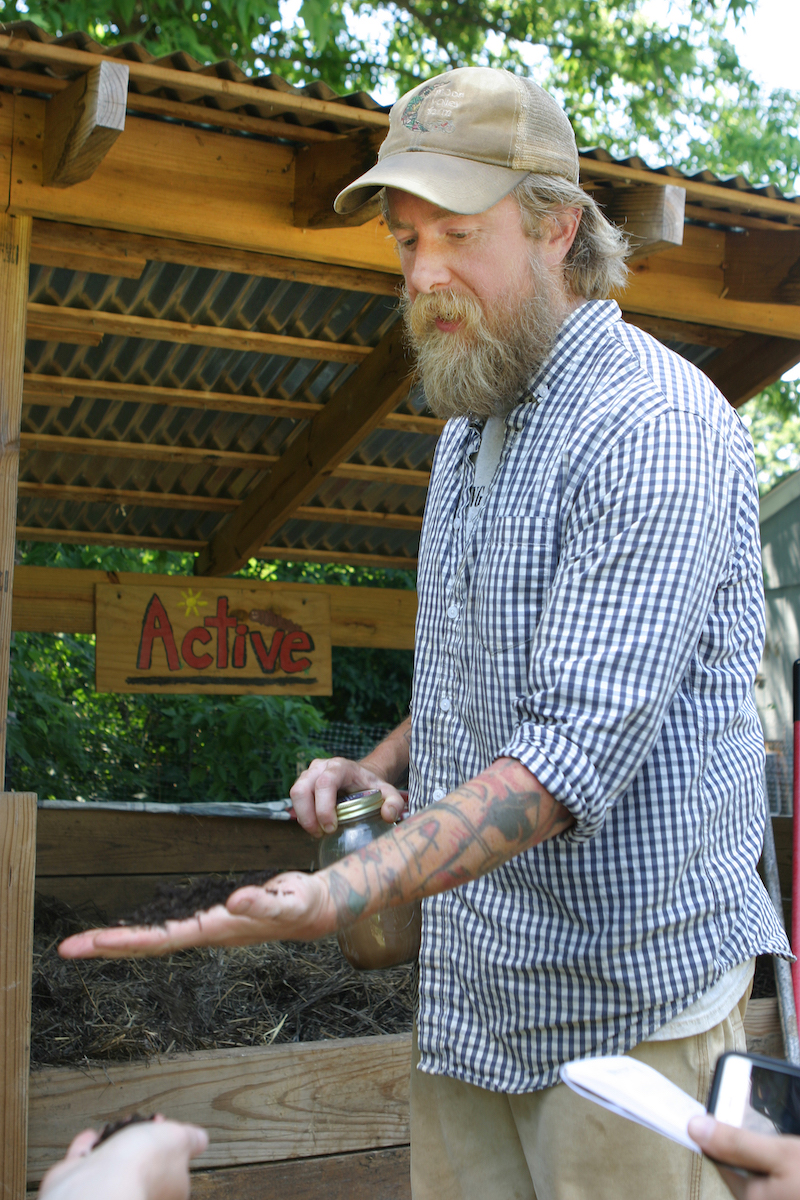
“We like to call this ‘creative reuse of suburban land’,” said Jason James, co-owner of Moon Valley Farm, as he hosts a tour for visitors and potential CSA customers. The farm business actually consists of a collection of mini-farms scattered throughout the area–from backyards right next door to fields 12 miles across town. Moon Valley Farm leases these scattered parcels of property, in some cases paying homeowners with CSA shares from the farm.
It’s a non-traditional way to acquire farmland, but the business is thriving.
“I am an opportunist. As farmers, I think we have to be.”
“We don’t own any land, so we try to take the principles that we know that work in agriculture and apply them to the unique situation we found ourselves in, and so far that works pretty well as a growing strategy.”
While having a farm spread across 12 miles in nonadjacent plots lessens the risks of crop loss from pests or disease and provides diverse growing conditions for a wider range of products, it also creates some management challenges, including driving everything from fertilizer, seedlings and actual products from one field to the next.
A farm tour of the block
The first mini-farm is in the back yard of James’ business partner, Emma Jagoz. “This farm in particular has lots of really weird spaces that don’t work particularly well for vegetables so we have different perennial plants in those areas,” said James. “In this area (behind the hoop houses) we keep English thyme, lemon thyme, chives, oregano, sage, anise hyssop, lemon balm, lavender, rhubarb, asparagus, sorrel, gooseberries…” He rattles off a long list that includes berries as well.
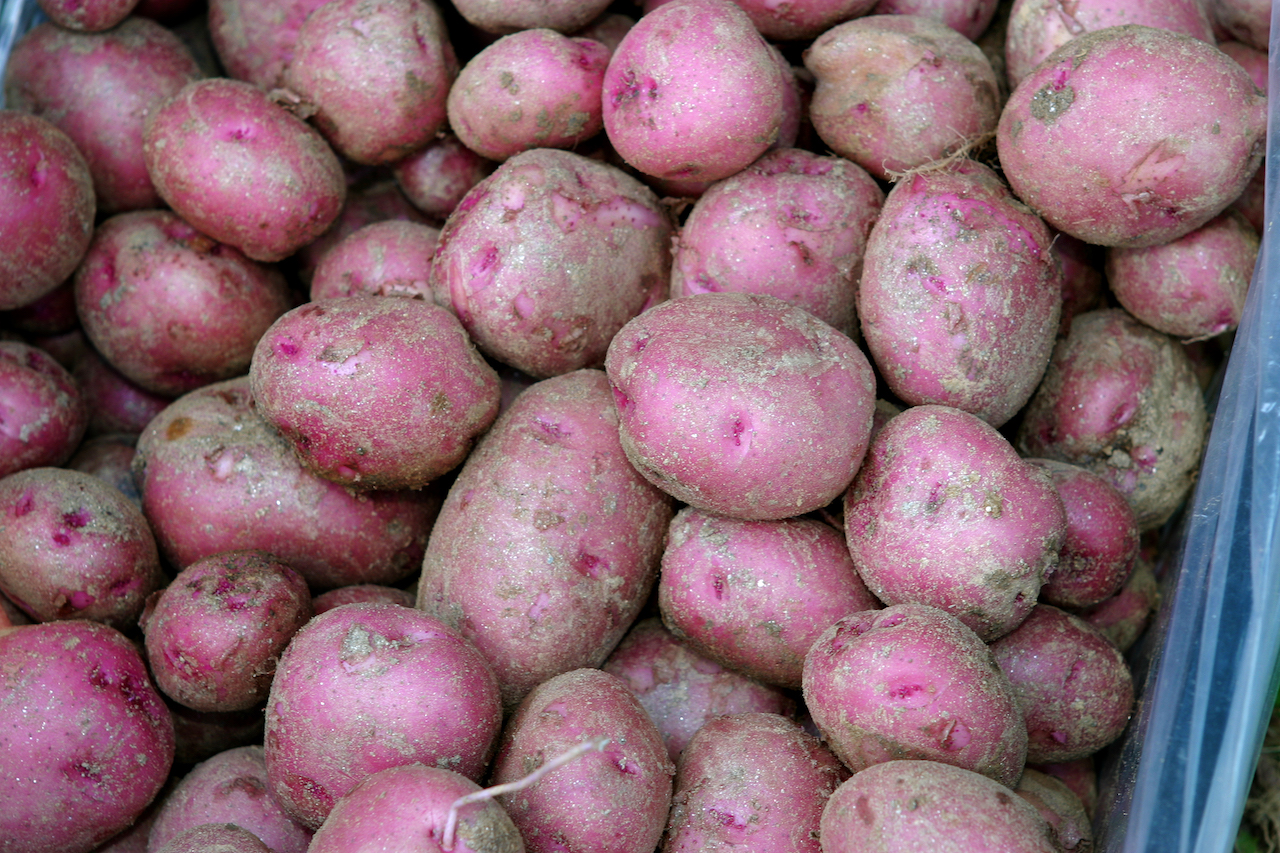
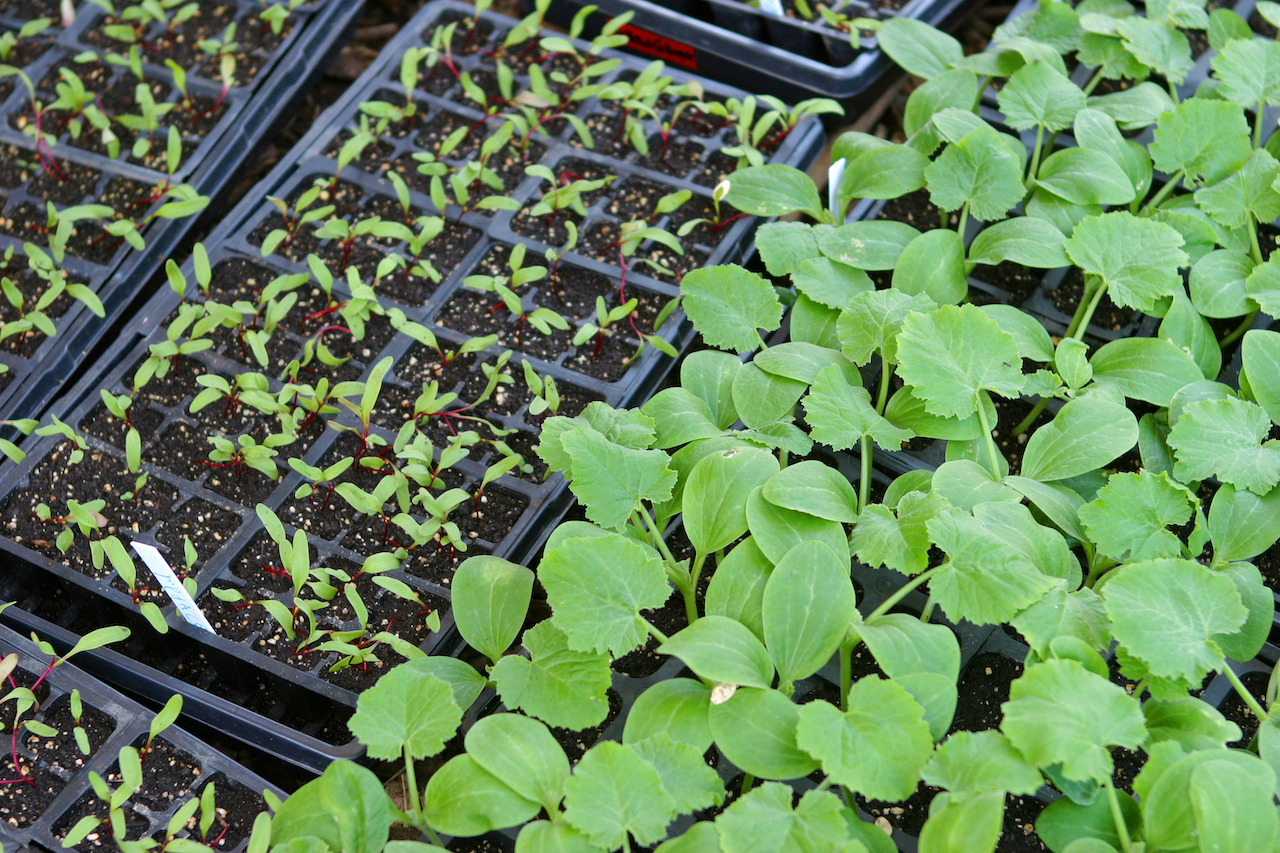
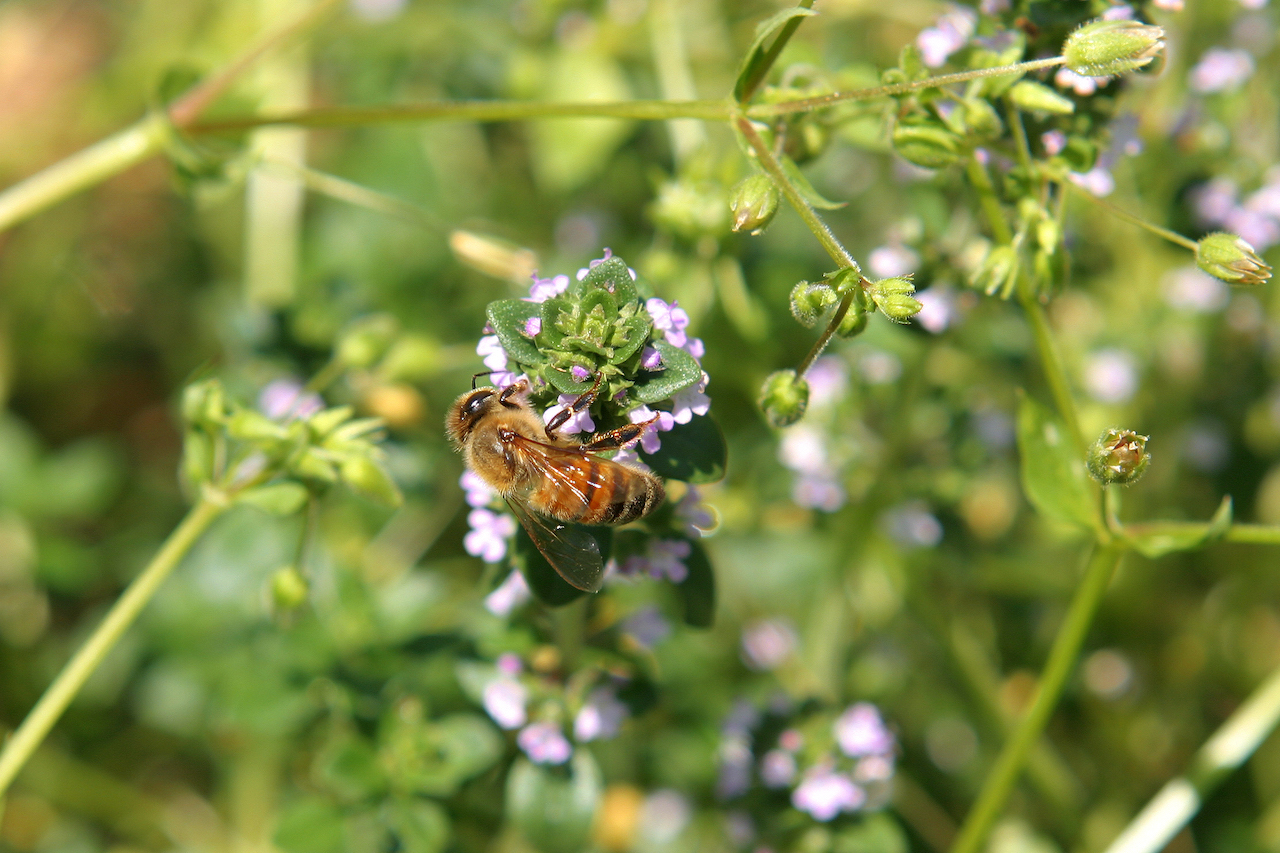
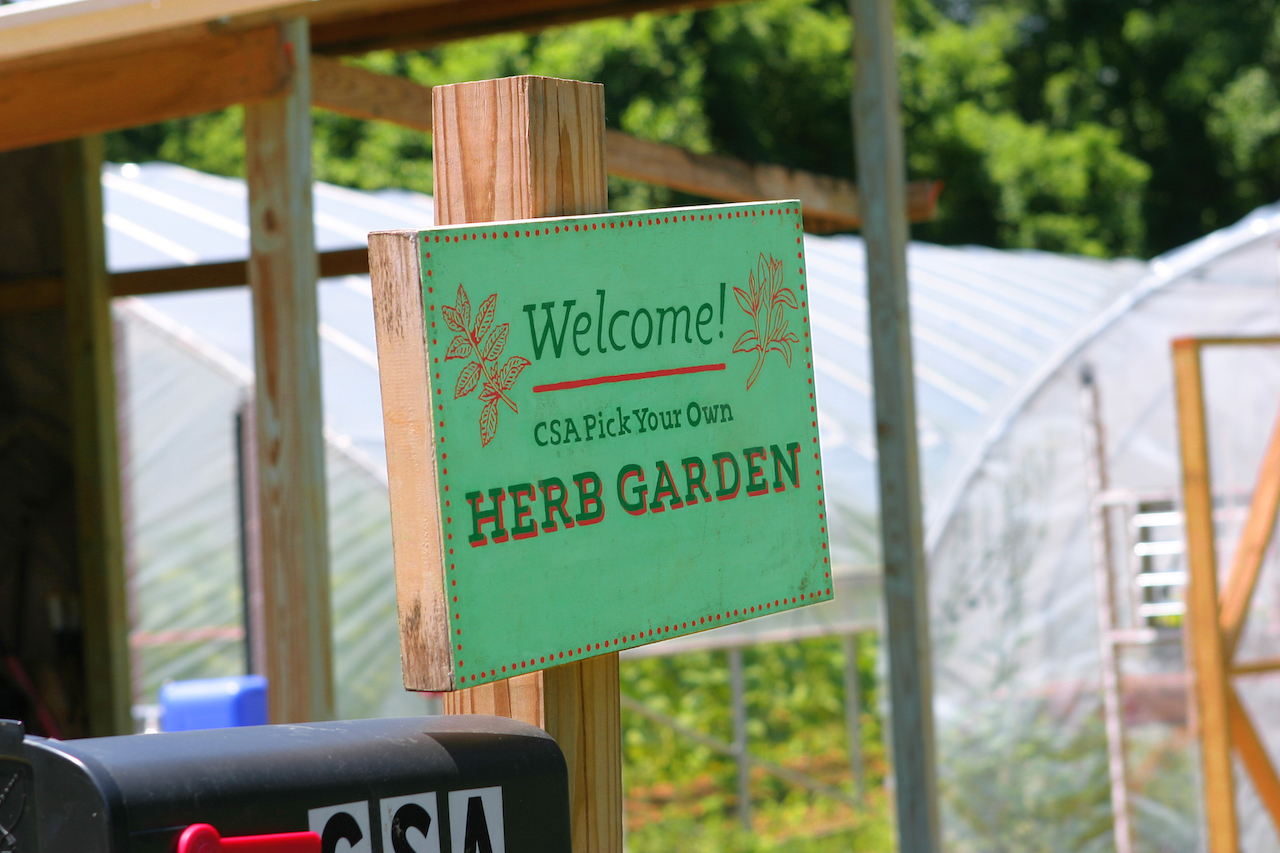
The tour continues at the next house down the block. “And this is Esther’s yard,” says James, indicating a half acre or so planted with heirloom tomatoes. This neighbor had been paying someone to mow the land after her husband died, and readily agreed when Jagoz approached her about planting vegetables here.
“This is our third year on this plot, and that’s something we’re trying to do more of, using these little mini-farms for crop rotation,” said James.
He moves on to the next field–Caroline’s yard–where farm workers are digging potatoes. “Caroline’s daughter takes care of her, and approached us the other day to let us know that seeing us grow food here is one of her biggest highlights,” James explained.
“That made us really happy, because one of our biggest fears has been what happens when a property transfers ownership; what are people going to do? This is our first experience with that and so far they have been very supportive.”
It’s easy to envision gardens the rest of the way down the street and into the next neighborhood. “Just in this neighborhood alone there are hundreds of acres of usable, irrigate-able, flat or gently sloping, full-sun land that, by-and-large, is just an expense or a burden for people,” said James. “So we give folks something interesting to look at when they poke their head out. Also they get food, which is great.”
Finding a market niche
The farm specializes in pesticide-free vegetables, herbs, chicken eggs, duck eggs and honey. James, who handles much of the distribution side of the business while Jagoz concentrates mainly on production, is constantly searching for the most cost-effective ways to get product into the hands of his customers.
“We don’t do farmers markets anymore,” said James. “Just CSAs, restaurants, grocery stores, and Chesapeake Farm to Table,” referring to a local food hub which receives food from area farmers and distributes to buyers throughout the region. “We’ve grown from working with one restaurant to now working with a half dozen restaurants to deliver a very high quality product at a good price.”
CSA (Community Supported Agriculture) shares make up a large part of Moon Valley’s business model. The farm supports 103 CSA members, who pay a fee in advance and then collect the farm’s harvest weekly throughout the growing season, and James expects to expand that to 120 shares by the end of June.
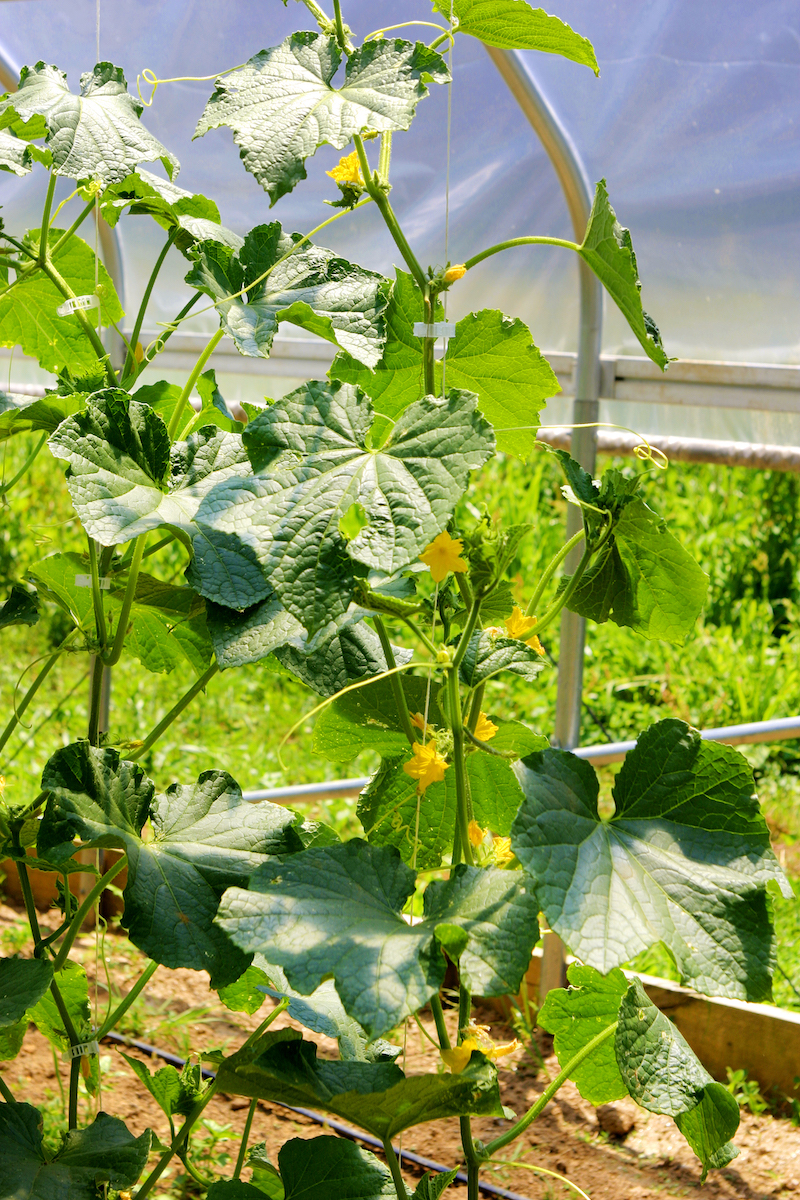
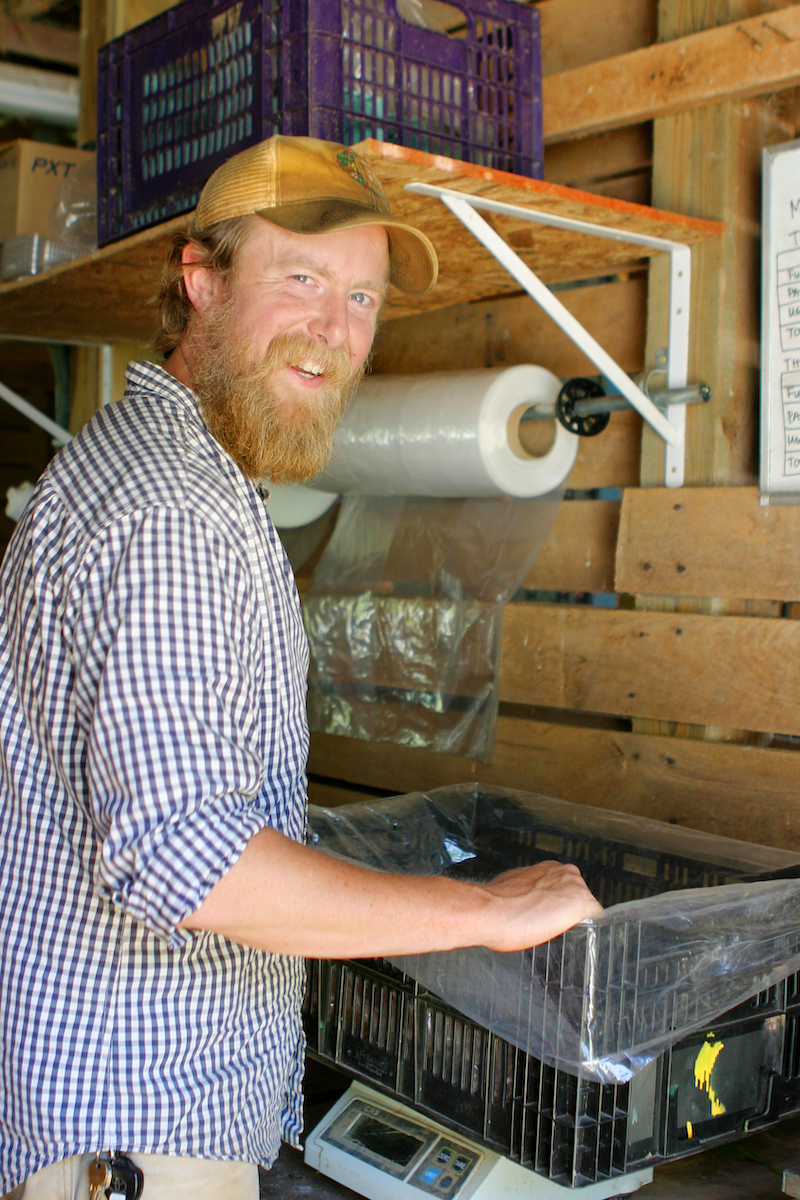
“We try to stay as fluid as possible. If we are ready to take on more members, we will use our Facebook page to get 10 or so new members each time.” Many CSA-based farms sell a set number of shares at the start of the growing season, only as many as they predict they can sustain. “The idea of telling people you’re sold out on May 1 is not a very growth-minded strategy, and we are growth minded here at Moon Valley Farm,” said James.
More and more CSA memberships are coming from the immediate neighborhood, close to the backyard farms that James manages, which gives new meaning to the idea of buying local. James is concentrating more on this.
And he has just started making “ugly” CSA shares available, where customers can pay a reduced price for product that is cosmetically damaged but otherwise edible. “In managing the risk of a farm business like this, the ability to take what would be a lost crop and still abstract some amount of value from it is tremendous,” said James.
Moon Valley’s CSA members pick up their shares at drop-off points throughout the county, or here at Jagoz’s property. The farm offers pick-your-own herbs in the fields out back for CSA members and chefs. Most CSA members are parents, and they really enjoy this option for the kids. “We’ve gone from growing for 15 CSA members on half an acre to 103 CSA members on four and a half acres.”
The tour loops back to the main farm and James escorts visitors inside the large barn where much of the post-harvest action occurs. On one end there is a washing station for produce; on the other is the CSA pickup area and one of the farm’s two walk-in coolers.
“If I had to tell somebody who was starting a new farm what their first expense should be, if they are selling direct to customers, they absolutely need a walk-in cooler. Otherwise you’ll have to do everything the morning of and that’s not sustainable.”
The value of mentors
Originally employed as an IT salesman, James switched to farming as a way to be healthier and to counter the culture of a throwaway society that he felt technology encouraged. With only a little farming background, James relies on books, on-line training and networking to tackle the daily challenges the farm presents. “Networking and word-of-mouth are critical with farming and the (FarmLINK Mentor Match) program has helped expand my network. By being in the program, I know Lisa a lot better now, and have better connections to new sales outlets,” said James, referring to mentor Lisa Duff, owner and operator of Oak Spring Farm, a two-and-a-half-acre operation in Freeland, Maryland similar to Moon Valley.
“Lisa helped me find a place to buy herb plugs when I need them, and when we needed more chickens, I was able to reach out to her too. We traded chickens for seedlings this year. Lisa has been a person to reach out to for solutions, helpful because both Emma and I have no formal education in agriculture.”
Making it work
James attributes the farm’s success to flexibility and commitment. He had some advice for other new farmers: “You have to be willing to be creative and come up with solutions or it will be a sad surprise. Synthesize what has worked for others, and then find your own path that works for you. Mentor Match forced me to communicate with someone off the farm and beyond. Keep horizons open try to meet others and go see others farms, that has been some of the best learning experience for me.”
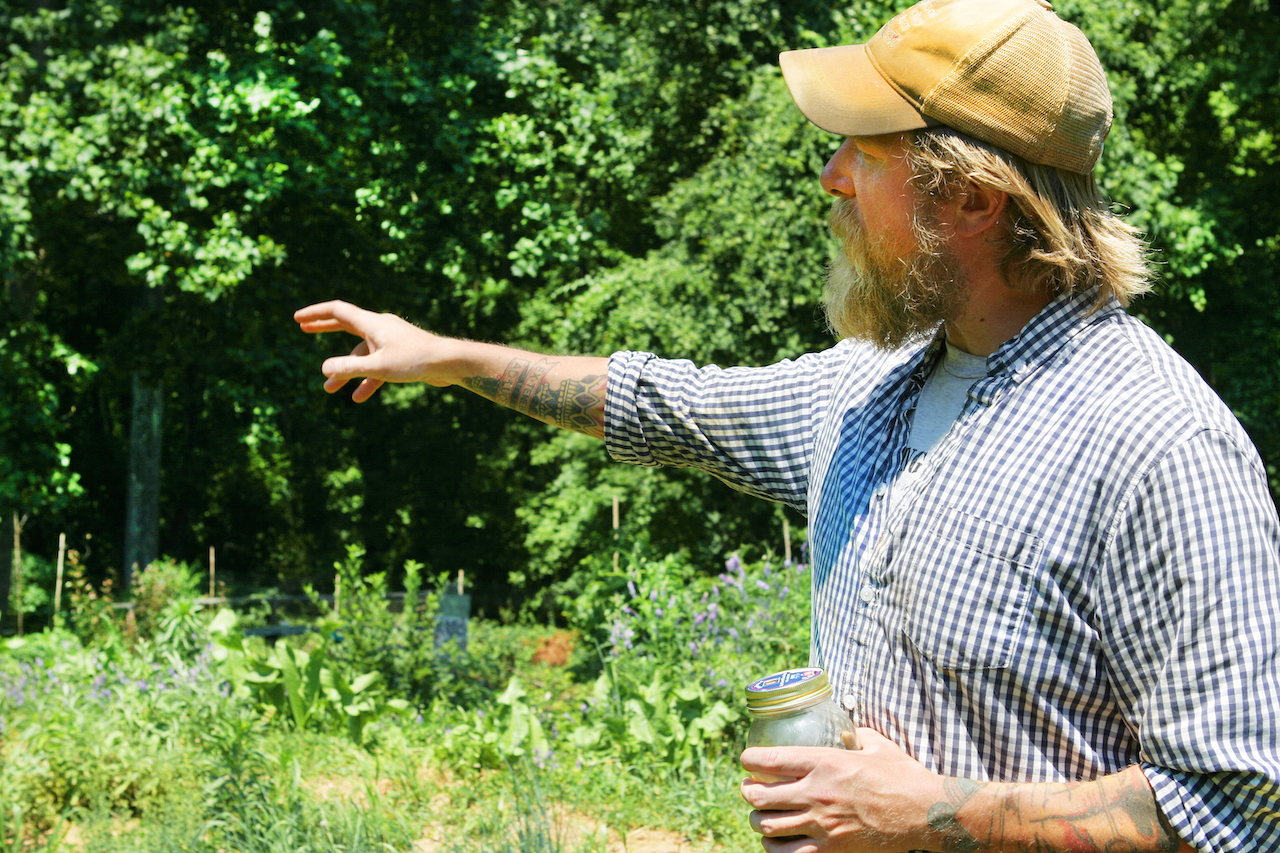
More from Tomorrow’s Harvest: New Farmer Stories
Follow us on Instagram @southern_maryland_ag[instagram-feed imagepadding=12]

